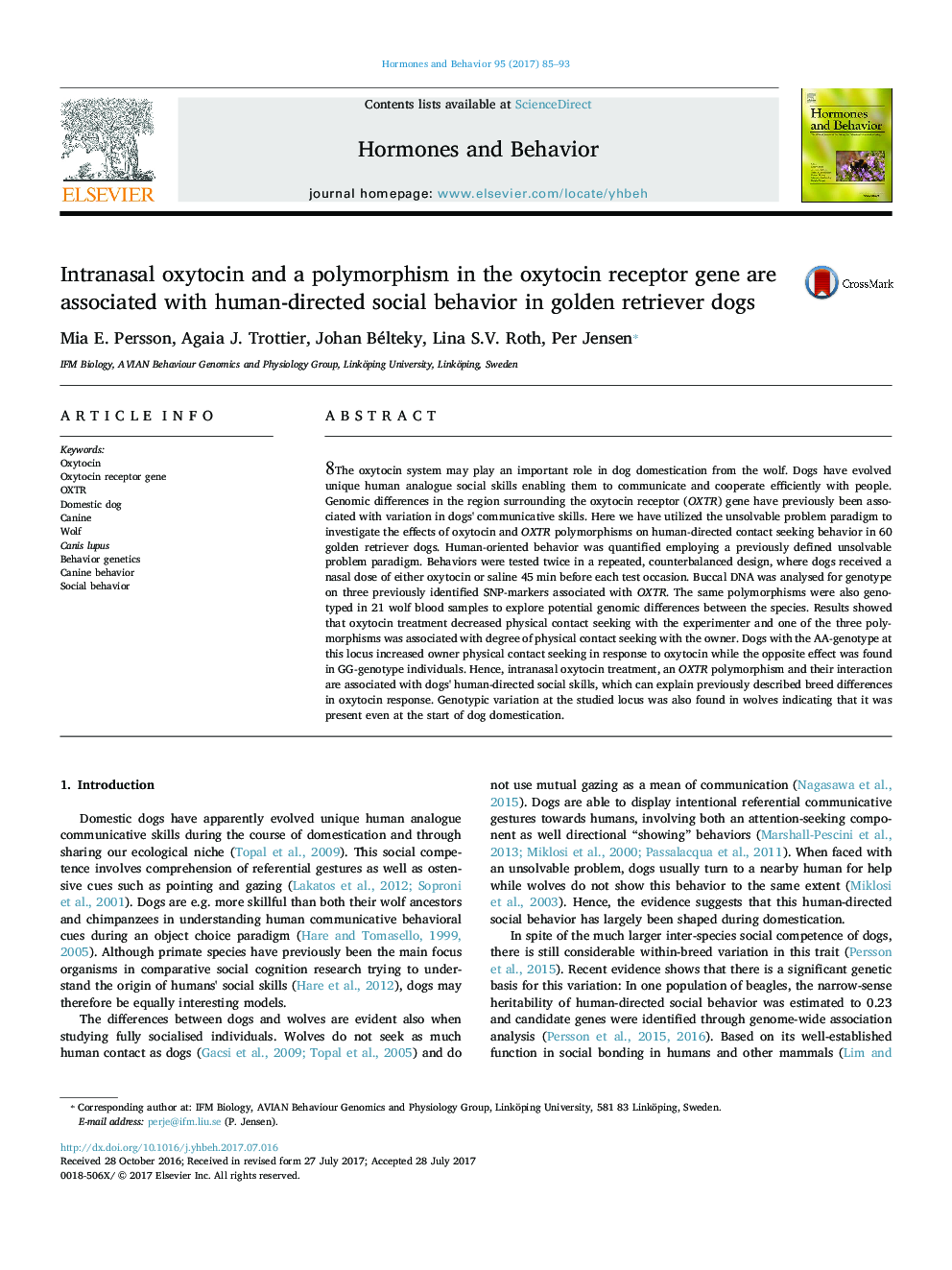| کد مقاله | کد نشریه | سال انتشار | مقاله انگلیسی | نسخه تمام متن |
|---|---|---|---|---|
| 4931076 | 1432745 | 2017 | 9 صفحه PDF | دانلود رایگان |
عنوان انگلیسی مقاله ISI
Intranasal oxytocin and a polymorphism in the oxytocin receptor gene are associated with human-directed social behavior in golden retriever dogs
ترجمه فارسی عنوان
اکسایتوسین اینترناسال و یک پلی مورفیسم در ژن گیرنده اکسی توسین با رفتار انسانی هدایت شده در سگ های رتینول طلایی
دانلود مقاله + سفارش ترجمه
دانلود مقاله ISI انگلیسی
رایگان برای ایرانیان
کلمات کلیدی
موضوعات مرتبط
علوم زیستی و بیوفناوری
بیوشیمی، ژنتیک و زیست شناسی مولکولی
علوم غدد
چکیده انگلیسی
The oxytocin system may play an important role in dog domestication from the wolf. Dogs have evolved unique human analogue social skills enabling them to communicate and cooperate efficiently with people. Genomic differences in the region surrounding the oxytocin receptor (OXTR) gene have previously been associated with variation in dogs' communicative skills. Here we have utilized the unsolvable problem paradigm to investigate the effects of oxytocin and OXTR polymorphisms on human-directed contact seeking behavior in 60 golden retriever dogs. Human-oriented behavior was quantified employing a previously defined unsolvable problem paradigm. Behaviors were tested twice in a repeated, counterbalanced design, where dogs received a nasal dose of either oxytocin or saline 45Â min before each test occasion. Buccal DNA was analysed for genotype on three previously identified SNP-markers associated with OXTR. The same polymorphisms were also genotyped in 21 wolf blood samples to explore potential genomic differences between the species. Results showed that oxytocin treatment decreased physical contact seeking with the experimenter and one of the three polymorphisms was associated with degree of physical contact seeking with the owner. Dogs with the AA-genotype at this locus increased owner physical contact seeking in response to oxytocin while the opposite effect was found in GG-genotype individuals. Hence, intranasal oxytocin treatment, an OXTR polymorphism and their interaction are associated with dogs' human-directed social skills, which can explain previously described breed differences in oxytocin response. Genotypic variation at the studied locus was also found in wolves indicating that it was present even at the start of dog domestication.
ناشر
Database: Elsevier - ScienceDirect (ساینس دایرکت)
Journal: Hormones and Behavior - Volume 95, September 2017, Pages 85-93
Journal: Hormones and Behavior - Volume 95, September 2017, Pages 85-93
نویسندگان
Mia E. Persson, Agaia J. Trottier, Johan Bélteky, Lina S.V. Roth, Per Jensen,
